About MEISA
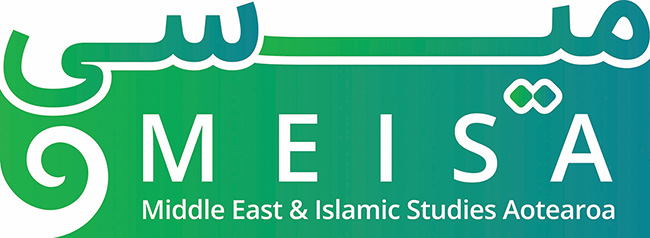 MEISA (Middle East and Islamic Studies Aotearoa) is an interdisciplinary academic network that brings together researchers and graduate students from different Aotearoa New Zealand universities and promotes research on all facets of the Middle East as well as the wider Islamic world from an Aotearoa New Zealand perspective.
MEISA (Middle East and Islamic Studies Aotearoa) is an interdisciplinary academic network that brings together researchers and graduate students from different Aotearoa New Zealand universities and promotes research on all facets of the Middle East as well as the wider Islamic world from an Aotearoa New Zealand perspective.
In the last few years the Middle East and the Muslim world has penetrated Aotearoa New Zealand's public space and consciousness to a degree not previously imagined. Syrian war refugees, the Christchurch terror attacks, and the centrality of the region to global questions of peace and security as well as environmental sustainability have continued to propel the Middle East and Islam onto centre-stage in Aotearoa New Zealand and around the world.
The core function of this network is to act as a catalyst for interdisciplinary research and publication, policy advice and enhanced intercultural dialogue with the Middle East and the Muslim world. We believe that the Middle East and Islam should be examined via a multi- or inter-disciplinary approach given its large scope and complexity across academic disciplines, policy-making areas and commercial fields. Related to that, our researchers cover not only the core countries of the Middle East but also Muslim states and communities in Africa, Asia and the Pacific, including here in Aotearoa New Zealand.
Our academic network is comprehensive and based in Aotearoa New Zealand. With this initiative, we hope to strengthen scholarship on the Middle East and Islamic Studies with an Aotearoa New Zealand perspective.
Research focus
Academic research
Research on the Middle East and the Muslim world speaks to multiple disciplines. For Political Science, History, Sociology, Religious Studies and Anthropology it is essential to better explore the drivers and patterns of colonialism, nationalism, conflict, and subsequent phenomena of migration and refugees in the region. This research is also of interest in terms of understanding the nature of authoritarianism, political participation, youth politics, identity, civil society, and state-minority relations. For Theology and Philosophy, research on the Middle East, Muslims, and Islam is vital as the focal point for rising and/or polarising religiosity in the East and West, which is important to Aotearoa New Zealand academics and policymakers.
Other areas, such as the archaeology of the Middle East is crucial to understanding the shared heritage and origins of Western and Eastern civilisations. Today the effects of technological disruptors and the so-called 'Fourth Industrial Revolution' are attracting great interest in the Middle East as countries strive to pivot from dependence on fossil fuel exports to diversified knowledge economies.
There are many potential avenues of academic collaboration and dialogue between Aotearoa New Zealand and the Middle East that MEISA hopes to explore and help facilitate. One salient example is in the area of tourism, which forms part of the economic diversification strategies of several Middle Eastern states. Halal tourism also continues to rise as a global market and needs to be explored here in Aotearoa New Zealand.
Policy-making
MEISA provides high-quality, objective and Aotearoa New Zealand-specific knowledge and data for domestic policy-making around issues, such as managing extremism and terrorism, interacting with authoritarian regimes, diversity, immigrant and refugee integration, and socio-cultural policy. In external policy making, research assists in foreign affairs and diplomacy with Middle Eastern, African and Asian states with Muslim minorities or majorities. Aotearoa New Zealand policymakers are increasingly required to make decisions regarding multilateral peacekeeping and humanitarian actions related to populations vulnerable to environmental failure, conflict, political repression, and violations of international law. The government's Zero Carbon agenda is also strongly connected to managing our national position within the wider global dependence on fossil fuels, largely exported from the Middle East.
Commerce and trade
The Expo 2020 in Dubai is scheduled to take place from October 2021. To maximise Aotearoa New Zealand's opportunities from global events like this, it is essential for New Zealanders to understand the Middle East and Muslim world well, so that our trade negotiators, entrepreneurs, professionals, agricultural producers and innovators can be well-informed to engage with peoples, businesses and governments. There are tremendous opportunities for Aotearoa New Zealand to positively interact in governance, commerce and business with Middle Eastern and Islamic populations. Innovative solutions are required for various realms, including but not limited to: stable economic and political reforms, sustainable agriculture and food security, natural hazards risk mitigation, managing environmental effects of climate change, eco-technology and smart technology, as well as Fintech, block-chain systems and A.I. For New Zealand universities, having a dedicated, visible Middle East and Islamic Studies network will be a major attraction for international students, from the large Middle Eastern and Islamic market, who are weighing up international study options.
MEISA reports and newsletters
Events
Past events
27 October 2022
“Women, life, freedom”: A conversation on the Iranian feminist uprising
Panel: Dr Negar Partow, Dr Hoda Afshar and Dr Forough Amin
26 August 2022
Change Capacity and the Organised Islāmiyyūn: A Comparative Case of the Egyptian Muslim Brotherhood and al-Nahda's Organisational Dynamics in the Post-Uprisings Period (2011–2020). Speaker Carmen Fulco
23 June 2022
A Letter from Tokyo, A Migrant to Mecca, and what it means to be Salafī. Speaker Dr. Mohammed El-Sayed Bushra
29 April 2022
Putin's War Path: Understanding Russian Foreign Policy from the Middle East to Ukraine
Putin's War Path webinar
28 October 2021
Aotearoa New Zealand and the Gulf
MEISA New Zealand and the Gulf Webinar
14 September 2021
Parsing the Possibility of Peace in Syria: Insights from Syrian and Aotearoa-New Zealand Scholars
MEISA meeting video recording
29 July 2021
Being Muslim: Perspectives from Aotearoa New Zealand Converts
Three distinguished speakers with unique insights into diverse experiences of Islamic conversion in Aotearoa New Zealand.
24 June 2021
What is Iran's future? MEISA WebinarPanel: Dr Negar Partow of Massey University, Wellington; Professor Mehran Kamrava, Georgetown University in Qatar; Professor Houchang Hassan-Yari, Sultan Qaboos University, Oman
3–4 May 2021
Official MEISA launch and Workshops
View session details and schedule (PDF)
MEISA network Launch Event video

The official MEISA launch and workshops were kindly sponsored by the New Zealand National Commission for UNESCO.
5 February 2021
Okan Tan, “Turkey's Constitutional Transformation Under AKP Rule”.
27 November 2020
Nashie Shamoon, “Shadows of the Past: The Role of Persecution in the Self-identification of the Young Assyrian Diaspora in New Zealand and Australia”.
30 October 2020
Eric Jeunot, “Tribe-State relations: Reconsidering Sovereignty in Yemen”.
25 September 2020
Tasmia Tahia, “Civil-military Relations in Pakistan following the 2008 Democratic Transition”.
28 August 2020
Hend Zaki, "Muslims in New Zealand, Identity and the Emergence of a Western Muslim Identity".
Network members
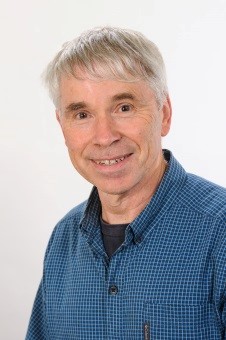 Emeritus Professor William Harris
Emeritus Professor William Harris
William has advanced the study of Middle East politics at the University of Otago since the early 1990s. He has written five sole-authored books on Middle Eastern affairs. In recent years his work has concentrated on Lebanon and Syria. His research interests include: the politics and history of the Levant states and Turkey; Middle East comparative politics; and the international affairs of the Middle East.
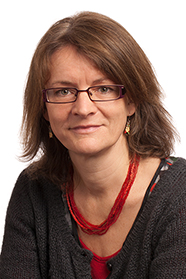 Professor Hazel Tucker
Professor Hazel Tucker
Hazel has been in the Department of Tourism at Otago since 2000, and her research and teaching broadly focus on tourism's influence on socio-cultural identities, relationships and change. For almost three decades Hazel has conducted a longitudinal ethnographic study tracking tourism and social change in Turkey's Cappadocia region, including foci on destination and entrepreneurial developments, gender issues, and World Heritage Site valuing and representation.
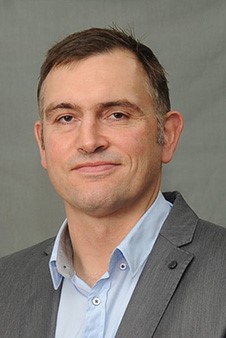 Dr Leon T. Goldsmith
Dr Leon T. Goldsmith
Leon is a senior lecturer in Middle Eastern and comparative politics at the University of Otago. His research looks at ethno-religious conflict and integration processes, identity politics, youth politics, political participation, political culture, institutions and comparative political systems. His main geographic areas of research are Syria and the Levant, and Oman and the Arab Gulf states.
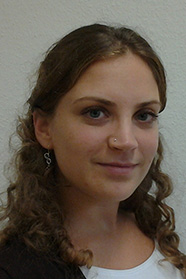 Dr Nadine Kreitmeyr
Dr Nadine Kreitmeyr
Nadine is an Adjunct Fellow at the University of Canterbury (UC). Prior to joining UC, she worked as an Assistant Professor at the Middle East Technical University (METU) in Turkey. Her research focuses on authoritarianism, neoliberalism and elite politics in the Middle East and North Africa from a Comparative Politics perspective.
![Ayca Arkilic image 2021]() Dr Ayca Arkilic
Dr Ayca Arkilic
Ayca joined Victoria University of Wellington (VUW) in 2017 after completing her PhD in Government at the University of Texas at Austin. Her areas of expertise are state-diaspora politics, migration, Turkish politics, Muslim minorities in the West, and conversion to Islam.
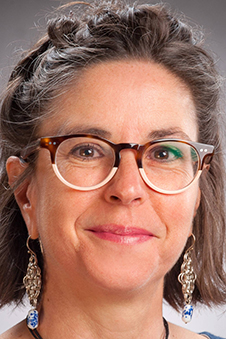 Dr Hanlie Booysen
Dr Hanlie Booysen
Hanlie is an adjunct research fellow in Religious Studies at Victoria University of Wellington. Her PhD thesis explained the moderate platform of the Syrian Muslim Brotherhood. Other research interests include Aotearoa New Zealand Muslim communities, the Israel-Palestine conflict, and martyrdom as a conduit for national unity in Iran. Dr. Booysen served as a diplomat to Jordan, Palestine and Syria.
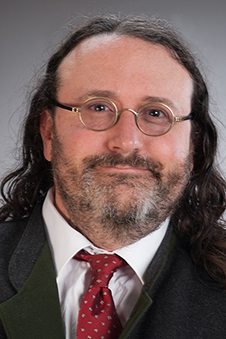 Dr Alexander Maxwell
Dr Alexander Maxwell
Alexander Maxwell (Victoria University of Wellington) is a historian working on the origins of nationalism in the Habsburg and Ottoman Empires. He has published on the Tanzimat era, on Ottoman Macedonia, and on Kurdish nationalism.
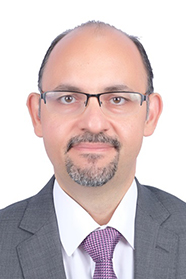 Dr MhD Hosam Hafez
Dr MhD Hosam Hafez
Hosam's main interest is in Syrian and Middle Eastern politics and international law. He was a member of the Syrian opposition negotiations delegations between 2014 and 2017 and served as the head of the Foreign Affairs and Diplomacy Department of the Syrian Interim Government in 2014-2015. Hosam Hafez holds a PhD in International Law and is currently completing a PhD in Politics at the University of Otago. He is a practicing lawyer and has worked as an academic in several universities. Previously, Hosam was a diplomat and he was posted at Syrian embassies in Tehran, London and Yerevan.
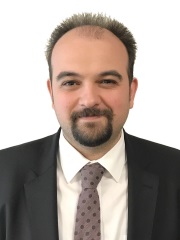 Okan Tan
Okan Tan
Okan completed his PhD at the University of Otago in 2023. Previously, he worked as a Policy Adviser for the New Zealand Embassy in Ankara. Okan's research focuses on the constitutional dimension of authoritarian populism in Turkey and Eastern Europe.
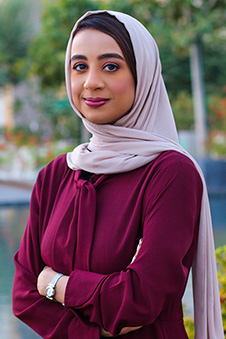 Sumaiya Al Wahaibi
Sumaiya Al Wahaibi
Sumaiya has worked with UNESCO in Muscat. Her research focuses on issues related to women's and gender studies, and is mainly interested in national politics and State-Society relations from a feminist perspective.
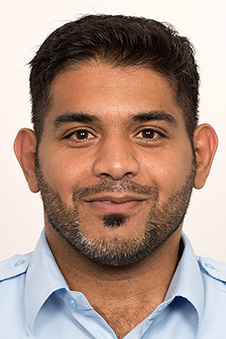 Aflah Al-Harrasi
Aflah Al-Harrasi
Aflah is a Muscat-based PhD Candidate at the University of Otago. He works on tribal and religious dynamics in the context of Oman's Imamate (1913-59).
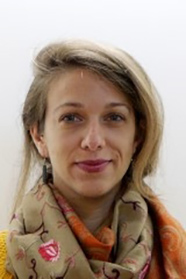 Carmen Fulco
Carmen Fulco
Carmen Fulco is a PhD Candidate and Research Assistant at the Politics Department at Otago University. Her prime research interests comprise politics and religion, Islamic movements, and populism in the MENA region. She pursued her bachelor's and master's degree in Oriental Studies at the La Sapienza University of Rome and lived and studied in Egypt and Tunisia, which remain her main geographic areas of interest. In her PhD thesis, she explores the change capacity of the Party of al-Nahda Movement and the Egyptian Muslim Brotherhood (MB), by unpacking their organisational dynamics in the post-Uprisings period (2011–2020) and assessing the overall imprint that those dynamics left on their respective organisations ten years later.
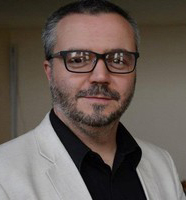 Eric Jeunot
Eric Jeunot
Eric is a PhD candidate at Victoria University of Wellington. He previously worked with Medecins Sans Frontieres (Doctors Without Borders) in the Horn of Africa and the Arabian Peninsula. Eric's research looks at the intersection of tribes and state in historical and contemporary Yemen's international relations.
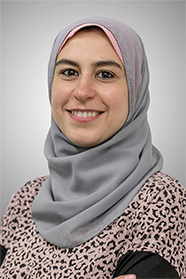 Hend Zaki
Hend Zaki
Hend is a PhD candidate at the University of Auckland. Her research focuses on the identity of Muslims in Aotearoa New Zealand and Australia. She previously worked as a policy adviser at the New Zealand Embassy in Cairo, Egypt. Currently, she works at the Refugee and Migrant Services Branch, Ministry of Business, Innovation and Employment (MBIE).
Zak Kettle
Zak studies international relations and classical history at Victoria University of Wellington. He has a particular interest in Turkish politics.
Contact us
Network administrators
Leon Goldsmith
Email leon.goldsmith@otago.ac.nz
Nadine Kreitmeyr
Email nadine.kreitmeyr@canterbury.ac.nz
Ayca Arkilic
Email ayca.arkilic@vuw.ac.nz
Hanlie Booysen
Email hanlie.booysen@vuw.ac.nz
General enquiries
Email meisa@otago.ac.nz
The MEISA logo was designed by Sheikha Al-Mamari.
 Dr Ayca Arkilic
Dr Ayca Arkilic